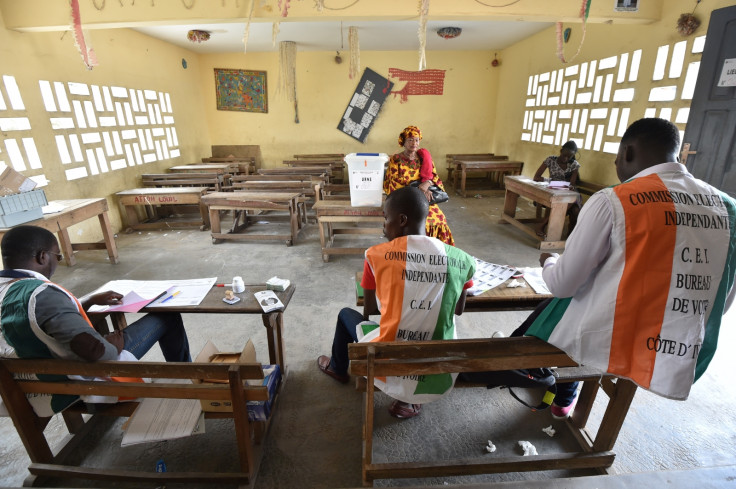Why Ivory Coast's decisive vote was met with both indifference and violence
Opposition claims controversial text could enable President Ouattara to run for president for a third time in 2020.

Abidjan was largely quiet and peaceful on Sunday (30 October) when there was a visibly low turnout in Ivory Coast's constitutional referendum following a short campaign for changes the president said will help end years of unrest.
Voters were asked to approve a draft constitution containing provisions that the opposition contended will significantly strengthen the power of the presidency, with one of the proposed modification effectively scrapping a clause that sets 75 as the age limit to be able to run for president.
Led by 74-year-old President Alassane Ouattara and the ruling coalition, the 'Yes' camp campaign kicked off last week, while Human Rights Watch claimed opposition parties' ability to explain their position to the public during their 'No' campaign had been "severely undermined".
Violence was reported in between 100 and 150 polling stations out of the nations' 10,000. In some cases, stations were held up by young men with knives and ballot boxes were taken away, while others were attacked with men armed with clubs and machetes, according to Reuters. Overall, however, the issues lay with the process, participation and inclusiveness rather than the violence.
Local reports have said the turnout fluctuated between 15% and 40% for each polling station – lower than the 2015 presidential election when 54.6% of voters cast ballots.
In this case, voters were asked to choose either a green piece of paper ('Yes') or a red one ('No') before putting one in an envelope and the other in the bin. Ivorians had concerns about the fact that this meant a voter could leave with a paper as a token for cash from one of the governing parties – but these fears were not evidenced during the vote. There were concerns these pieces of paper could easily be stuffed in the ballot box – unlike with a tick-the-box vote.
'Little firm grasp of what was in the constitution'
Rights groups have spoken of fears that the amendments to the constitution – such as the abandon of referendums for certain provisions and the need for only two-thirds of the Senate, a third of which is appointed by the president – to forfeit changes. Many in Ivory Coast see Ouattara as having control over the legislator.
The lack of interest was primarily due to an absence of attempts to really engage the population in the discussion during the brief seven-day campaign, and the outcome was already known following the opposition's boycott of the vote.
"The election campaign did not give enough time for opposition parties and anyone supporting the 'No' campaign to explain to the population what was in the constitution and what the arguments for and against were," Jim Wormington, researcher with Human Rights Watch's Africa Division, told IBTimes UK from Abidjan.
"When we spoke to people yesterday at polling stations, it was very clear that even though people came they didn't have a firm grasp of what was in the Constitution in many cases, and many of them said that they felt the reasons for the low turnout was because of the short campaign and the inability overall to really engage in the process and in an inclusive and constructive fashion about what the Constitution should be about."
There is also some disenchantment with the government from pro-Ouattara supporters, who feel they may not really seeing the trickle down impact of economic growth – and boycotting the vote may also been a way of expressing frustration.
© Copyright IBTimes 2025. All rights reserved.






















